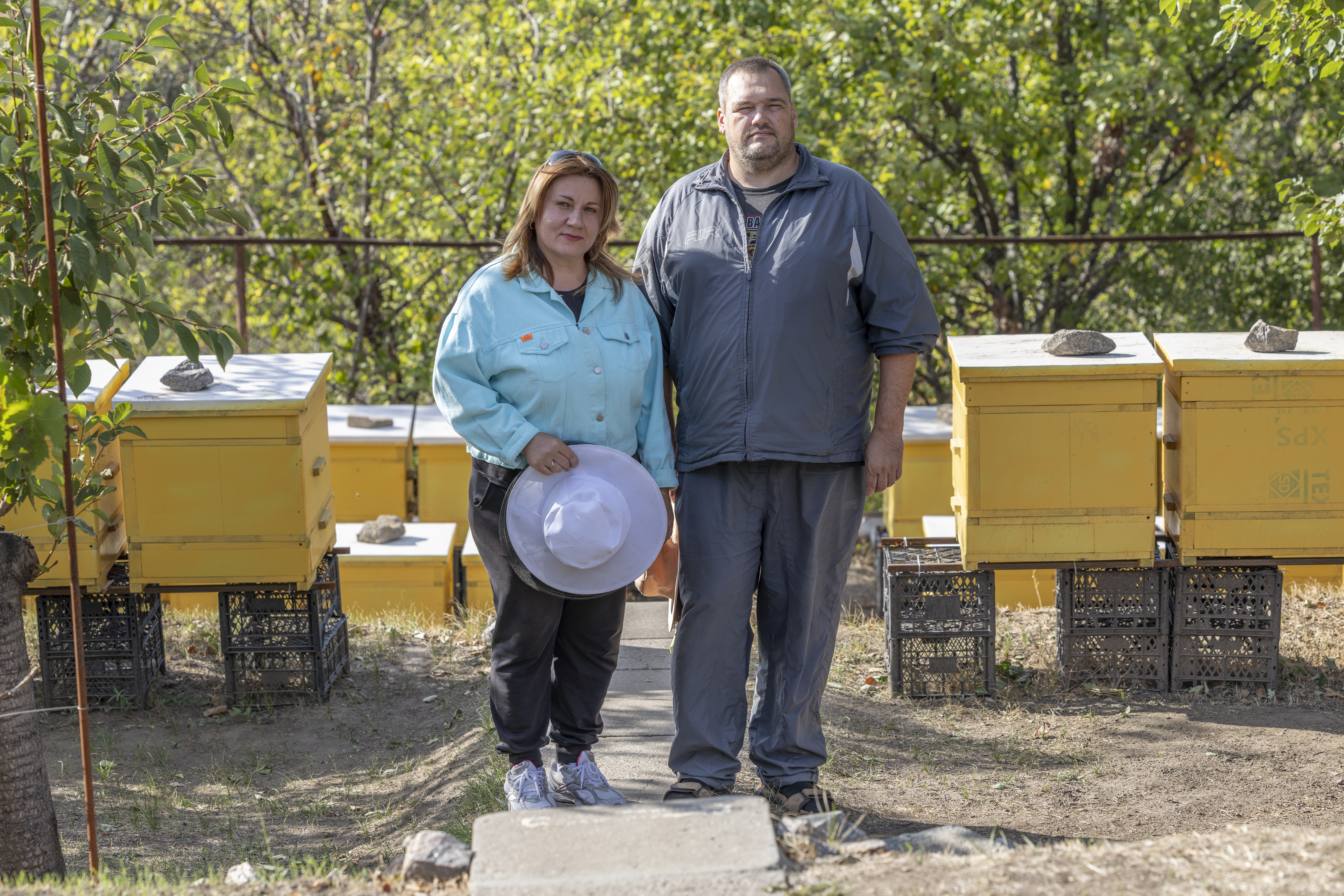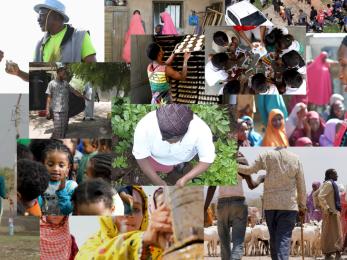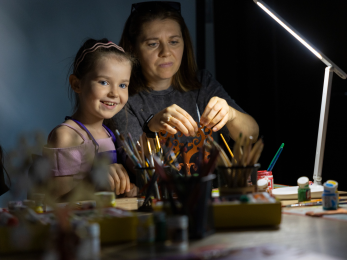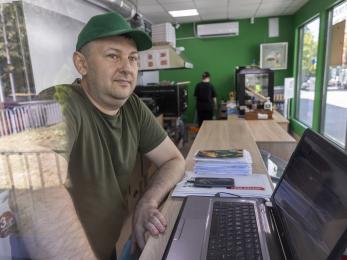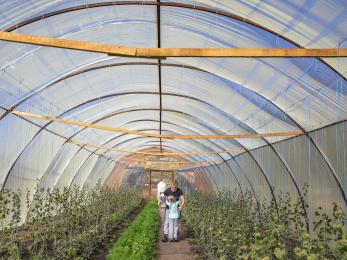Breadcrumb
Ukraine
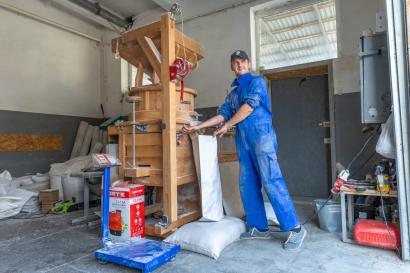
Mercy Corps has worked in Ukraine since 2015, supporting communities to build more productive and resilient futures. In 2024, our programmes reached over 220,000 people across the country.
The context
On February 2022, the Russian military launched a full-scale invasion of Ukraine, significantly intensifying the conflict that began in 2014. The war has resulted in widespread loss of life, with hundreds of thousands of casualties. More than 12.7 million people in Ukraine are in urgent need of humanitarian aid. The conflict has displaced millions—as of May 2025, around 5.6 million people have sought refuge in other countries, and 3.8 million people were internally displaced within Ukraine—making it Europe’s largest refugee crisis since World War II.
As of 2025, roughly 20% of Ukraine’s territory remains under occupation. Active fighting continues along Ukraine’s frontline, with adjacent areas face daily shelling and drone attacks. Major Ukrainian cities are regularly targeted, resulting in destruction and damage of critical infrastructure like the country’s energy grid, medical facilities, schools, and homes. The conflict has devastated the agricultural industry, disrupting exports of food and grains to countries in South Asia and Africa who rely on the crops. Farmers are losing their land in addition to delaying crop planting and harvest seasons.
Our impact
Since the escalation of the war in 2022, Mercy Corps has supported over one million affected people in Ukraine, and nearby Poland, Moldova, and Roumania. While continuing to deliver essential humanitarian assistance, Mercy Corps is also committed to strengthening economic resilience in Ukraine. Gradually shifting from emergency response to early recovery and economic support, our programmes are designed to help communities restore their livelihoods, reduce dependence on aid, and adapt to the rapidly evolving challenges in Ukraine’s dynamic environment. Our programmes make an impact across these areas:
Delivering humanitarian aid to meet urgent needs
In collaboration with local partners, Mercy Corps has distributed over $56 million in cash aid and winterisation assistance across frontline areas of Ukraine, reaching nearly 285,000 people. Families have the flexibility to purchase what they need with cash aid to adapt during the winter season by buying wood or coal for heating, replacing windows, or obtaining warm clothes and blankets. Winterisation and shelter support are critical for the millions of Ukrainians affected by the ongoing war, particularly when harsh winter conditions set in.
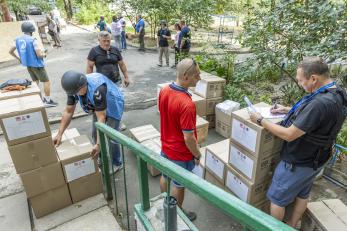
Additionally, over 137,000 individuals have received shelter support, ranging from rent assistance to providing fully-furnished living spaces that have been fitted with accessibility features for people with disabilities; and other supplies such as kits that include food, hygiene products, childcare items, and shelter repair.
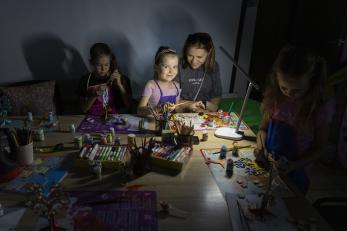
As part of our humanitarian response, we have provided psychosocial support and employment training. For participants who continue to endure air raid sirens and explosions, the opportunity to attend art and psychological therapy offers a respite as well as a means to process their experiences during the war.
Restoring livelihoods for small business owners and farmers
Mercy Corps provides immediate support for urgent livelihood needs while laying the foundation for long-term resilience. By providing small business coaching and grants for saeed capital, our programmes have improved and stabilised income for 19,000 people who have been internally displaced and other war-affected communities.
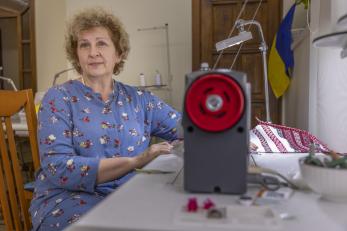
Our programmes support both people who rely on agriculture for their livelihoods as well as subsistence farmers, who primarily grow food to feed their households. More than 1,000 household-level subsistence farmers and 100 small farms have received cash grants to buy critical supplies, with additional support directed to women-led households and agricultural producers to resume or expand their businesses through entrepreneurial training.
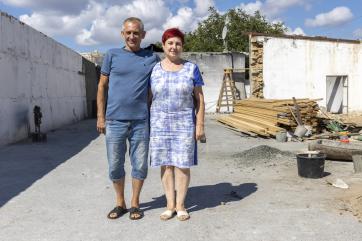
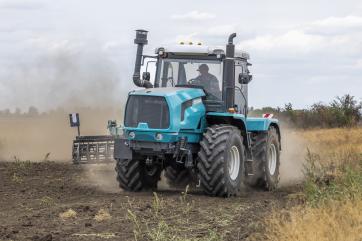
In collaboration with local partners, Mercy Corps provides legal and financial consultancy services to help address operational challenges they may face in rebuilding their businesses. Early recovery for farmers and entrepreneurs is essential in increasing economic stability and self-sufficiency.
Driving innovation with an inclusive approach
Mercy Corps is piloting projects that provide increased water and energy access to rural communities affected by the war. We are working with local partners to restore damaged water infrastructure and enhance local water resources. We are training women, veterans, and displaced people in the solar energy sector to meet urgent power needs while creating new economic opportunities.
As part of our multifaceted approach in assisting Ukrainian communities, we have launched an Innovation and Inclusion Fund which identifies and supports innovations that demonstrate strong social impact and more sustainable solutions in the areas like agriculture, economic development, and humanitarian assistance. We collaborate with partners to ensure the participation of organisations representing LGBTQIA+ communities, women-led organisations, ethnic minorities, persons with disabilities, and internally displaced people in decision-making and to increase access to services.
*Names have been changed
